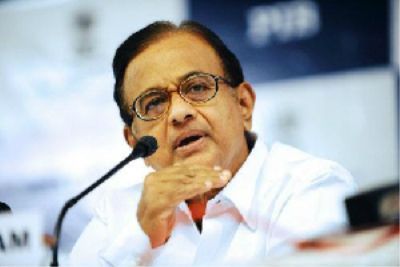
New Delhi, September 24: The government is readying a package to boost real estate activity by easing lending and provisioning norms for banks as part of a strategy to prop up the sector that provides significant employment in the country after developers expressed their inability to cut prices to increase demand.
The steps follow an interaction that finance minister P Chidambaram had with public sector bank chiefs last month, where he also asked the Indian Banks' Association (IBA) to prepare a simplified education loan scheme, backed by a credit guarantee fund.
While a new education loan code is a work in progress, bankers said a funding boost for real estate was discussed by financial services secretary D K Mittal with bankers and industry representatives in Mumbai last week and the government will seek simplification in norms by the Reserve Bank of India (RBI).
On education loans, while IBA is still working out the norms, a bank chief said the FM's suggestion to provide loans to students getting admission under the management quota was virtually accepted. Similarly, banks will change the service area approach for these loans and students will be able to avail of the facility from any branch.
At the meeting, Chidambaram sought feedback from banks on various sectors and has already taken up the issue of clearing infrastructure projects that are held up in the absence of land, fuel or environment clearances. Besides, he has asked state-run banks to devise schemes to push consumer durables sales, which was seen as a message to cut rates on auto loans.
Chidambaram said there were nearly five lakh apartments lying vacant in Mumbai alone and asked IBA to look at ways to prop up demand, get builders to complete projects and sell unoccupied dwellings.
A banker said developers had argued that it was tough to cut prices given the high labour and land cost as well as inputs such as cement and steel. Besides, they said the profit margin was not very significant to justify a reduction in prices. As a result, the government is now looking at ways to help the sector that can have a rub-off effect on sectors such as cement and steel besides creating jobs.
At the meeting, lenders demanded a change in approach by real estate developers, asking them to move to a project-specific borrowing model, which will make it easier for lenders to track funding. "We do not lend to a corporate house which is in the cement or power sector. We lend to a project that is being developed, which also provides us comfort," said a public sector bank chief.
Another bank chief said that for these projects, an escrow amount will be opened, where buyers would deposit their money and lenders would be able to take charge of those funds. "But when it comes to builders, it is easier said than done," the chairman added.
A key area where lenders are seeking a change in norms is to get the regulator to simplify norms so that the loans extended for residential projects to the builders are not treated at par with those for commercial real estate. Currently, all exposure to developers requires higher charge on capital, which means banks have to set aside more funds if they lend to companies.
RBI has traditionally been wary of bank lending to real estate and even has a cap of 5% on loans to the sector. Although home loans are treated separately, the regulator has often discouraged banks from lending to individuals as well.






Comments
Add new comment